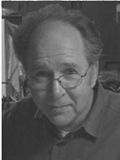GOTO is a vendor independent international software development conference with more that 90 top speaker and 1300 attendees. The conference cover topics such as .Net, Java, Open Source, Agile, Architecture and Design, Web, Cloud, New Languages and Processes
Ted Dunning, TweetProduct Architect at MapR

Biography: Ted Dunning
Ted has held Chief Scientist positions at Veoh Networks, ID Analytics and at MusicMatch, (now Yahoo Music). Ted is responsible for building the most advanced identity theft detection system on the planet, as well as one of the largest peer-assisted video distribution systems and ground-breaking music and video recommendations systems. Ted has 15 issued and 15 pending patents and contributes to several Apache open source projects including Hadoop, Zookeeper and Hbase. He is also a committer for Apache Mahout. Ted earned a BS degree in electrical engineering from the University of Colorado; a MS degree in computer science from New Mexico State University; and a Ph.D. in computing science from Sheffield University in the United Kingdom. Ted also bought the drinks at one of the very first Hadoop User Group meetings.
Twitter: @ted_dunning
Presentation: TweetOld and New Building Blocks Come Together For Big Data
It has become a widely accepted truism that big data means that you have to throw away existing code and re-implement your algorithms using new file systems (like HDFS), new data stores (like HBase or Cassandra) and new programming paradigms (like map-reduce). It is said that this is necessary in order to achieve high performance and scalability.
I think that this need not be so. In fact, I think it should not be so.
I will demonstrate with concrete examples that old and new code can work together in big data environments with benefits on both sides. These concrete examples will use well-known components including Solr/Lucene, Storm, node.js and d3.js together with big data systems based on Hadoop to provide state-of-the-art recommendation systems. Moreover, the combination of these parts into one cohesive system shows just how important it is to avoid trying to make one kind of system do all kinds of jobs. Instead, by building a hybrid system, we can have the benefits of multiple specialist systems.
Presentation: TweetLightning Talks: Hard Things Made Easy part 2
Folds made easy / 11:30 - 11:40
by Erik Meijer
Let types do the work / 11:40 - 11:50
by Erik Meijer
Lexical Closure - it is actually pretty simple! / 11:55 - 12:05
Really truly Bayesian Inferencing without Tears / 12:10 - 12:20
by Ted Dunning
